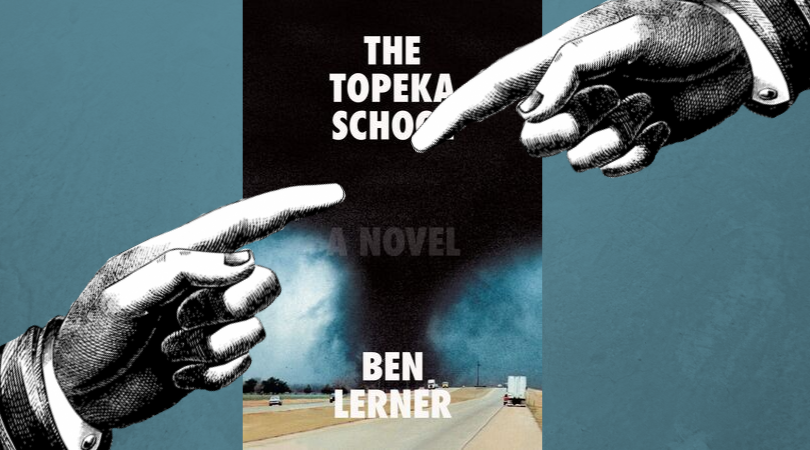
There are few things the literary community relishes more than the appearance of a polarizing high-profile book. Sure, any author about to release their baby into the wild will be hoping for unqualified praise from all corners, but what the lovers of literary criticism and book twitter aficionados amongst us are generally more interested in is seeing a title (intelligently) savaged and exalted in equal measure. It’s just more fun, dammit, and, ahem, furthermore, it tends to generate a more wide-ranging and interesting discussion around the title in question. With that in mind, welcome to a new series we’re calling Point/Counterpoint, in which we pit two wildly different reviews of the same book—one positive, one negative—against one another and let you decide which makes the stronger case.
Ben Lerner wears many hats. He’s a poet, a novelist, and an essayist. He’s been a finalist for the National Book Award (for his poetry collection, Angle of Yaw), a Fulbright scholar, and a MacArthur fellow. The Topeka School, published just this week, follows Adam Gordon, debate champion, resident cool kid, and son of world-renowned psychiatrists. Enter Darren Eberheart, who Adam tries to bring into his inner circle. Little does he know Darren is one of his father’s patients.
Overall, The Topeka School has been met with positive reviews. On the more effusive side, we’ve got Christine Smallwood in Harper’s declaring the novel “thoroughly, intimidatingly brilliant and absolutely contemporary … funny, and at times, painfully acute.” In The Paris Review, Nikki Shaner-Bradford calls it “a masterful narrative of the impact that mental illness, misogyny, homophobia, politics, and religion have on children who want to be men.” Kamil Ahsan writes in The A.V. Club,”The Topeka School mostly succeeds. Lerner’s method has a fair bit of madness, but it’s all about the relationship between language and what it has the power to conjure.”
Some critics had more mixed reactions; many if which felt that Ben Lerner’s attempts to tie the novel to the current moment overshadowed the story. Hari Kunzru says in 4Columns, “The Topeka School is a timely book, very occasionally marred by the author’s wish to underline this timeliness.” The Atlantic‘s Jordan Kisner writes, “Lerner seems interested in reiterating via the details of his own biography the now-evident political reality that these alienated men are powerful and dangerous precisely when they feel they are not.”
Today, we’re taking a look at Mari Greif’s Bookforum review, which insists, “Lerner has hit on something deep, and true.” In the other corner, we’ve got Nathan Goldman’s The Baffler review, which posits, “The novel falls short of the task it sets itself.”
So, what do you say, reader? Want to enroll in The Topeka School?
*
When he turned to see what effect his speech had had, she was gone, jeans and sweater in a little pile with the pipe and lighter.
“… awe-inspiring … Lerner has hit on something deep, and true, in the portrait of ‘debate’ in this book, as what it has long seemed to be—the knightly combat or martial arts of children of the professional-managerial class, where they can practice the linguistic violence they’ll use as adults against real targets in politics, the law, and administration … The beautiful recollections of childhood in The Topeka School allow for a Portrait of the Artist–type origin story in which Adam’s eventual triumph as a poet, and as the writer of this novel, occurs by the neutralization of the voices of debate and white rap with his mother’s feminism … The Darren plot seems a way to lend a convention of suspense, familiar from other contemporary novels, to a book that is better than most contemporary novels. Perhaps its virtue is as a reminder of the persistence of exclusion in a progressive civilization—our own—which redeems some new subjects only to despise and scapegoat others.”
–Mark Greif, Bookforum
“The Topeka School seems to hold up Darren and Adam as two different models of masculinity, one abased and the other exemplary, rather than sustain a more nuanced and generous critique of both…This is not to say that Lerner fails to depict or consider Adam’s own outbursts of masculine rage, but when they do erupt, the broader moral structure of the scenes can be taken to partially justify them …. Adam struggles with his masculinity, yes—but ultimately, he means well, and mostly, behaves well. He’s a good man. Darren, meanwhile—even with the compassion the novel affords him—embodies misogyny’s ugliness come to its full fruition. The novel is a meditation on and critique of masculinity, yet its central male psyche emerges relatively unscathed … Does this really constitute a reckoning? The Topeka School is, like the novels that preceded it, an intelligent, unsettling inquiry that doubles as a self-referential aesthetic edifice … Yet the novel falls short of the task it sets itself. Here Lerner finds a form that generatively complicates his essayistic style of autofiction—expanding its capacity to speak politically and historically—but which also allows him to let the self at the novel’s center off the hook, tempering the achievement. Ambition outpaces courage.”
–Nathan Goldman, The Baffler
Deep Dive: The Topeka School as a gateway book.
If you buy books linked on our site, Lit Hub may earn a commission from Bookshop.org, whose fees support independent bookstores.

